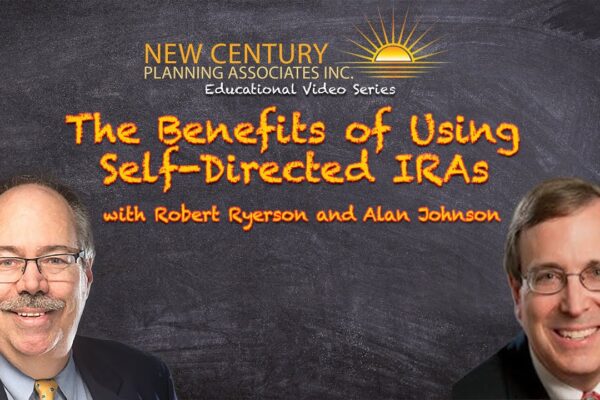Financial Planning Mistakes You Need to Avoid
Establishing a stable financial future is a common goal, but it’s hard to know if you are doing things right. You might wonder whether or not you even need a financial planner, or you may think that your savings plan right now is more than enough to help you reach your financial goals.
Even if you think you are already headed in the right direction with your financial plan, there may be some common financial mistakes you are making that can inhibit your progress. Here is a look at a few of the most common financial planning mistakes:
Mistake #1: Not Focusing on Saving at All
The first step towards setting up your financial plan is to get started with savings. Unfortunately, many American households are not saving at all. Instead, they are living paycheck to paycheck. Federal Reserve data notes that the 2018 savings rate in American households was just 3.1 percent, a startlingly low number.
Insufficient savings can quickly become a disaster in the event of a large, unexpected expense or economic downturn. Many families have experienced this personally during this year (2020), due to the massive economic recession caused by the global coronavirus pandemic.
Most financial planning experts encourage setting aside a minimum of three months of expenses into a savings account in case of an emergency. Just that amount could make the difference between surviving a crisis or suffering serious loss. It may be difficult to accumulate a 3-6 month expense buffer, but it should be a top priority if it is not already in place.
 Mistake #2: Not Tracking Spending
Mistake #2: Not Tracking Spending
As many financial planners will tell you, an early step towards creating a budget is in tracking your everyday expenses. Before you can implement budgets to help you divert funds into savings or other investments, it helps to track your common expenses and look for places to eliminate them. Tracking expenses like this can also give you a jumping-off point for creating a personalized budget for yourself.
Once you see where your money is going each month, you can make some changes to increase the amount of money you are socking away into your savings and retirement accounts. Even small changes to the amount you save can make a big difference to your finances, especially when you consider how compounding can affect the amount you put away in tax-advantaged retirement vehicles.
 Mistake #3: Not Paying off Debt
Mistake #3: Not Paying off Debt
Though it may be tempting to start looking into investing as a way to increase your net worth, starting that process before you eliminate excess debts won’t have the impact you want. There is little point in achieving a 5 percent return on your investments when you are also paying 17 or 18 percent interest rates on outstanding credit card debt, for example.
Focus on eliminating high-interest debt, such as outstanding credit card debt, before you start exploring options for investment. You will save yourself a substantial amount of money at the outset by eliminating the extra money you are paying in interest. The monthly amount saved from paying off the first debt can then be re-directed toward the next highest cost monthly debt and payment, and so on.
 Mistake #4: Not Starting Soon Enough
Mistake #4: Not Starting Soon Enough
Financial planning is often aimed at long-term goals, such as retirement or large purchases like a home. As a result, many people do not think about starting the process until later in life. However, as most financial planners will tell you, the sooner you can start the process of saving for your retirement and establishing a solid financial plan, the better the result will be for you.
Creating your financial plan as early as your 20s can give you decades longer to accumulate savings and start checking off your long-term financial goals. The earliest savings you put away will turn out to be the most important, due to the principle of compounding interest.
Setting aside just 100 dollars a month for 30 years, assuming an average rate of return at about 8 percent, could result in the accumulation of nearly 150,000 dollars. However, the longer you wait to start saving, the more money you have to put away to reach the same savings goals in a shorter period.
Mistake #5: Spending Too Much on Vehicles
People might not think about their vehicle purchases as having a large impact on their savings and financial planning, but it can have a big impact. More now than ever, people are spending large amounts of money to purchase large, brand-new vehicles, often taking out loans to cover the costs. Unfortunately for them, cars are depreciating assets, that begin to lose value the moment you leave the dealership’s lot.
Not everyone can pay cash for a car, but you might consider purchasing a car that won’t cost you significant amounts of money to maintain, with better gas mileage and lower insurance and maintenance costs. You might also look at used cars, rather than brand new cars, so that you can spend less money at the outset for a car that can serve you just as well.
Author
Robert Ryerson
Although Robert M. Ryerson completed all the necessary requirements to earn bachelor of arts degrees in both English and economics at Rutgers University, college policy at the time prohibited the issuance of dual degrees. As a result, he graduated from Rutgers with a single bachelor of arts in economics before finding employment as a stockbroker with Shearson Lehman American Express in New York City 1984. Robert M. Ryerson has since established himself as a respected estate administrator and legacy planner. In addition to his economics degree from Rutgers, Mr. Ryerson holds several professional designations including Retirement Income Certified Professional (RICP)®; Certified In Long Term Care (CLTC)®; Certified Financial Fiduciary (CFF)®, and Certified Identity Theft Risk Magenament Specialist (CITRMS)®. He has shared his knowledge on the subject of identity theft as the author of the book What’s The Deal With Identity Theft?: A Plain-English Look at Our Fastest Growing Crime. He has also covered identity theft issues directly for students as the instructor of the adult education course Understanding Identity Theft: Our Fastest Growing Crime.






